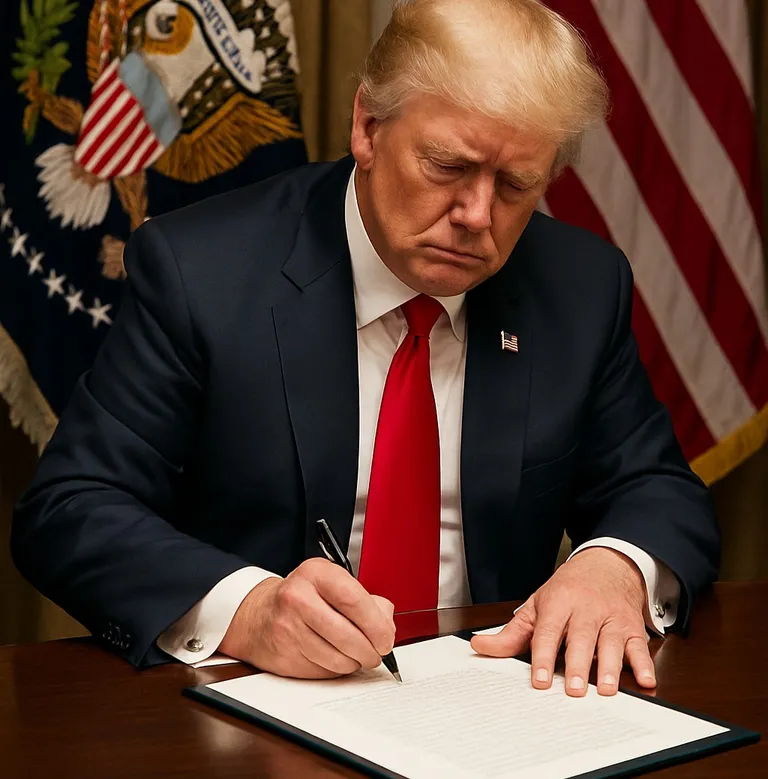May 2025 — Global Trade Desk — President Donald Trump announced yesterday that he is delaying the implementation of a 50% tariff on imports from the European Union, moving the deadline from June 1 to July 9 to allow for further negotiations.
The announcement followed a call between Trump and European Commission President Ursula von der Leyen, which both sides described as constructive.
📞 A “Good Call” to Buy Time
Von der Leyen posted on X (formerly Twitter) that she had a “good call” with Trump and emphasized that the E.U. needed additional time to reach a trade agreement. She added:
“Talks will advance swiftly and decisively.”
Trump echoed the optimism in a Truth Social post, calling the U.S.-E.U. trade relationship “one of the most consequential and close” in the world.
⚠️ Context: A Brewing Trade Conflict
Last Friday, Trump threatened to impose the 50% tariff on all E.U. imports, citing stalled negotiations. The move sparked concerns of a potential trade war between two of the world’s largest economies.
“Trade talks with the bloc were going nowhere,” Trump said at the time.
The threat led to immediate reactions from European trade officials and economists, warning that such tariffs could have destabilizing effects on global supply chains and consumer prices.
📊 What’s at Stake?
The proposed tariffs could impact:
- Automobiles and machinery (major E.U. exports to the U.S.)
- Wine, cheese, and luxury goods
- Agricultural products and industrial raw materials
A 50% tariff would raise costs significantly for American consumers and businesses while potentially provoking retaliatory tariffs from the E.U.
🛠️ What Happens Next?
Negotiators from both sides are expected to:
- Meet in Brussels and Washington over the coming weeks
- Address agriculture subsidies, digital taxes, and automotive trade balances
- Draft a framework agreement before the new July 9 deadline
Trade analysts say that while the deadline extension is a relief, the risk of escalation remains high if no substantial progress is made.
Final Thoughts
Trump’s decision to delay tariffs may temporarily ease tensions, but the underlying friction in U.S.-E.U. trade relations remains unresolved. With global markets watching closely, the next six weeks could determine whether cooperation or conflict defines the future of transatlantic commerce.
By ✍️ Yorlinda Ramìrez - MicuPost Team
Sources:



